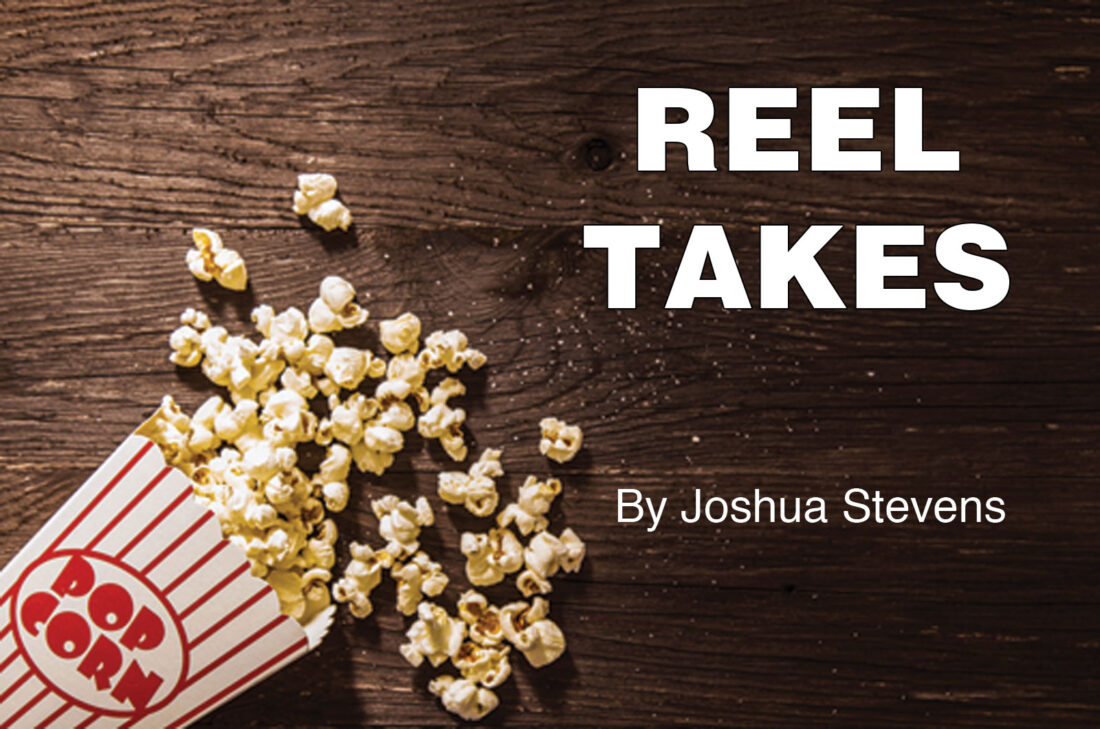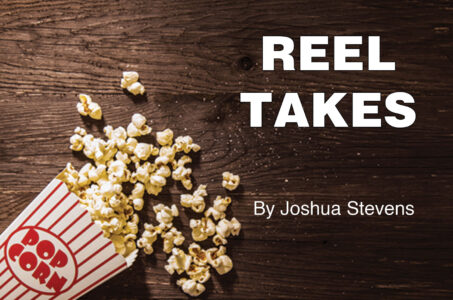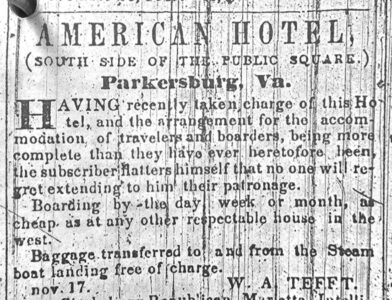Reel Takes: Grisly deaths break stride of ‘The Long Walk’

(Graphic Illustration - MetroCreativeConnection - Reel Takes - Joshua Stevens)
“The Long Walk” is as grueling and gruesome as a Stephen King adaptation can get. Normally, that’s exactly what an audience expects and even craves from a film based on one of the legendary horror author’s works. Here, though, that grisliness becomes the movie’s biggest defect.
Francis Lawrence, director of three of the four “Hunger Games” films, seemed like the perfect choice to bring this 1979 King novel to the big screen. This story shares much with Suzanne Collins’ world: After a full-scale war leaves much of the country desolate and financially broken, young men volunteer for a competition called “The Long Walk.” The rules are simple but brutal: walkers must maintain a certain speed, are given a series of warnings and are shot once those warnings run out. The last man walking wins great riches and the granting of one wish.
This premise sounds difficult to bring to life on screen. People walking — even with such high stakes — doesn’t lend itself to many cinematic thrills. But the film does benefit from some strong performances. Cooper Hoffman brings depth to Ray Garraty, who enters the contest in part to help his mother. David Josson is equally (if not more) compelling as Peter McVries, Ray’s closest companion on the walk. The actors naturally demonstrate a real connection. Mark Hamill, playing an authoritarian known as the Major, brings an energetic sense of menace. These performances give the film a small central heartbeat, even as everything else, from the pacing to the cinematography, feels lifeless.
At its core, King’s novel warns against the desensitization of violence. Young men march at the whim of a tyrant, enduring a physically and psychologically devastating ordeal, while citizens cheer on the sidelines or watch comfortably from their homes. Despite being written in the late 1970s, these themes remain tragically relevant, as the emergence of social media and unfiltered information infiltrates our shared consciousness. The problem with Lawrence’s adaptation is that it undercuts, not sharpens, King’s critique. The camera lingers on the endless executions in graphic detail, rarely choosing restraint over shock value. Only on a few occasions are the deaths mercifully blurred in the background.
Violence and death have been a part of cinema since its beginning, and many fans and critics since have been arguing about the merits and consequences of such on-screen content. Call to mind intense war films such as “Saving Private Ryan” or mob films like “Goodfellas.” Movies like these, however, have a different objective than a film like “The Long Walk.” Those classics are intentional in showing either the terrible effects of war or the immoral choices of flawed individuals. “The Long Walk” aims to be a call to action, a rallying cry to reject the normalization of violence. Yet by reveling in the very violence the story condemns, the film seems wildly hypocritical and counterproductive.
When directing “The Hunger Games” films, Lawrence wisely did not fixate on the violence, but rather highlighted themes of totalitarianism and control. In “The Long Walk,” the director makes the opposite choice, focusing on the spectacle King wanted to reject. The result is a film that, despite some powerful acting, struggles to find its footing and values shock over meaning.
Rating: 2/5






